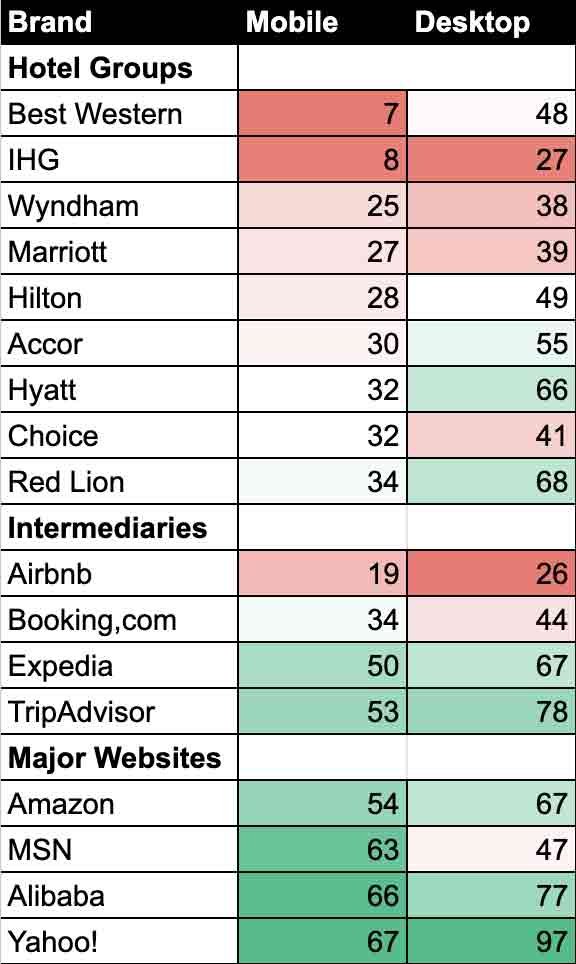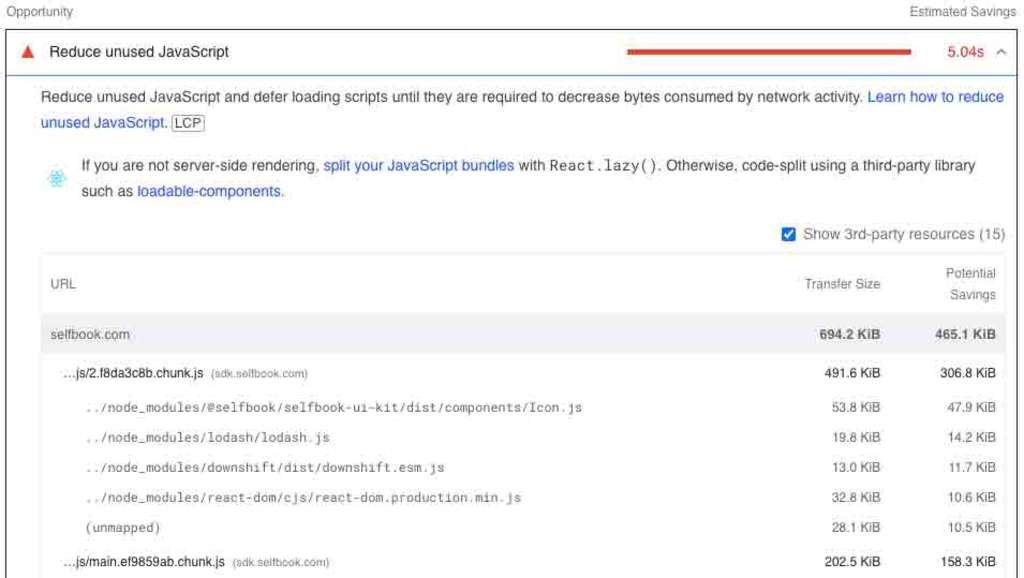Speed Wins
Why Website Performance Matters and What to Look For
By: Jason Shames and Jason Pirock | June 15, 2023 | Article Link
Having a fast website is crucial for the success of any business. 53% of mobile users will abandon a website if it takes more than three seconds to load (Google), which is 76% higher than if the site loads in less than 3 seconds.
This is particularly true for the hotel industry, where potential guests expect to find and book their accommodations online quickly. In the past, the first impression of a hotel was the lobby. Today, it's the website, said the late Arne Sorenson, the former CEO of Marriott. Too often, a hotel's first impression is not positive due to website performance, which is almost entirely within the hotelier's control.
What and how is performance defined? Simply put, it's how quickly a webpage loads and renders on a user’s device. Google, on Web.Dev, outlines the measurements of speed (as written by Google):
Largest Contentful Paint (LCP): measures loading performance. To provide a good user experience, LCP should occur within 2.5 seconds of when the page first starts loading.
First Input Delay (FID): measures interactivity. To provide a good user experience, pages should have a FID of 100 milliseconds or less.
Cumulative Layout Shift (CLS): measures visual stability. To provide a good user experience, pages should maintain a CLS of 0.1. or less.
Make it stand out
Slow websites cause potential guests to lose patience and abandon, either booking with another property in its competitive set or indirectly through an online travel agency or wholesaler. In 2022, indirect guest bookings accounted for an estimated 55% of all hotel bookings in the United States; this number is expected to grow in the coming years. The growth of these high-cost reservations is partially due to poor direct website performance and the ease of indirect booking. Sites that load in 2 seconds or less have a 90% higher conversion rate than sites that load in 7 seconds or more. The table (updated - Rock Cheetah) shows website performance scores, as ranked by Google, showing hotel groups' direct booking channels underperforming intermediaries - 100 best - 0 worst.
Google handles 88.8% of global search traffic, and they have revealed that page speed is a major ranking factor in search results. This means that websites with faster load times will rank higher in search engine results and receive more free organic website traffic. The equation is simple: performant website + relevant keywords = guest discoverability.
Tools available, such as Google PageSpeed Insights, can help you measure website performance and identify areas for improvement. While PageSpeed Insights on Web.Dev will analyze any website, below are some tips to optimize your website:
Optimize Images and Videos: Large images and videos can significantly slow down your website, so optimizing them for web use is essential. This can be done by compressing the file size without compromising image quality, using more efficient image formats like WebP, and reducing the image dimensions to fit the space on the website. You don’t need a large image for a small space.
Minimize HTTP Requests: Each element on a webpage, such as images, CSS files, and scripts, requires an HTTP request to load. The more up-front requests a webpage has, the longer it will take to load. You can minimize up-front HTTP requests by combining files where possible, reducing the number of images used, lazy loading content and scripts, and minimizing the use of external scripts, especially ones that cause main thread blocking. The example below shows a 5-second impact associated with 3rd-party JavaScript loaded onto a hotel website.
Use a Content Delivery Network (CDN): A CDN is a network of servers that distributes your website's content to users based on their geographic location. This can significantly improve website performance by reducing the distance data needs to travel, resulting in faster load times.
Optimize Code: Optimizing your website's code can improve load times by reducing the amount of data that needs to be transferred and by reducing the time it takes to execute the code. This can be done by minifying code, removing unnecessary code, and using efficient coding practices.
Implement Caching: Caching temporarily stores website data to be quickly accessed when a user visits the website again. This can significantly improve load times for repeat visitors.
Use a Fast Web Host: Your web host plays a critical role in website performance, so choosing a fast and reliable host is important. Look for a host with good uptime, fast servers, a built-in CDN, and robust security features.
Website load speed is crucial for the success of hotel websites. A fast website leads to a positive user experience, higher search engine rankings, and increased conversions. To ensure your hotel website performs optimally, you should regularly test and optimize its load speed. Doing so can improve the overall user experience, increase revenue, and gain a competitive edge in the crowded hospitality industry.



